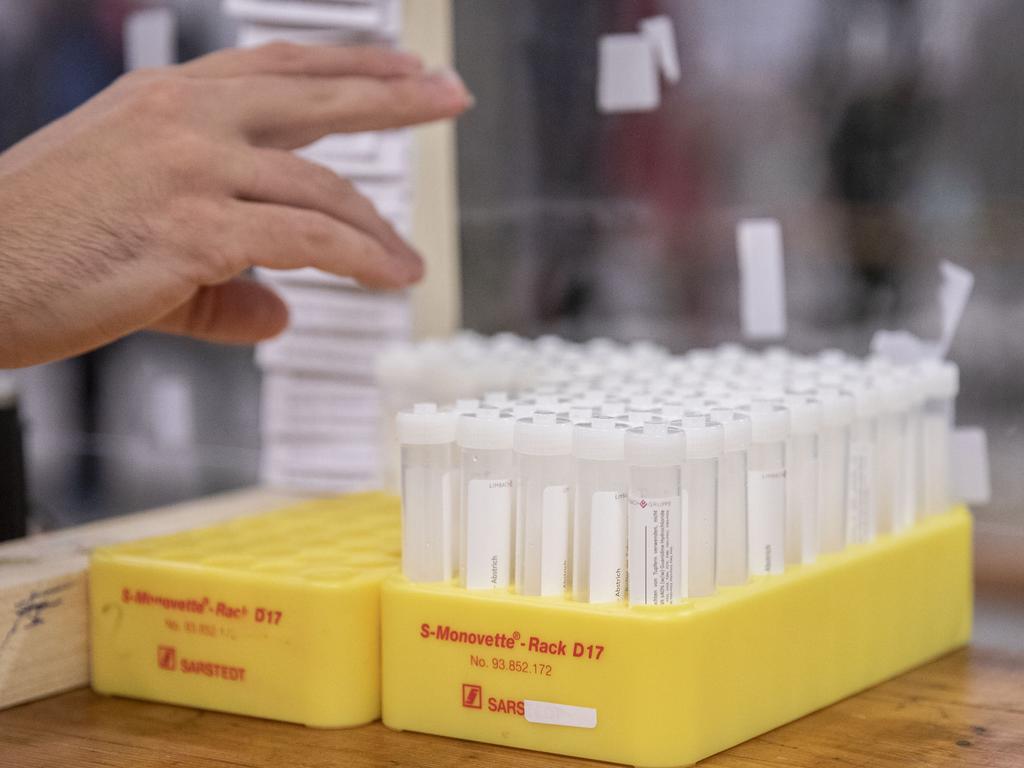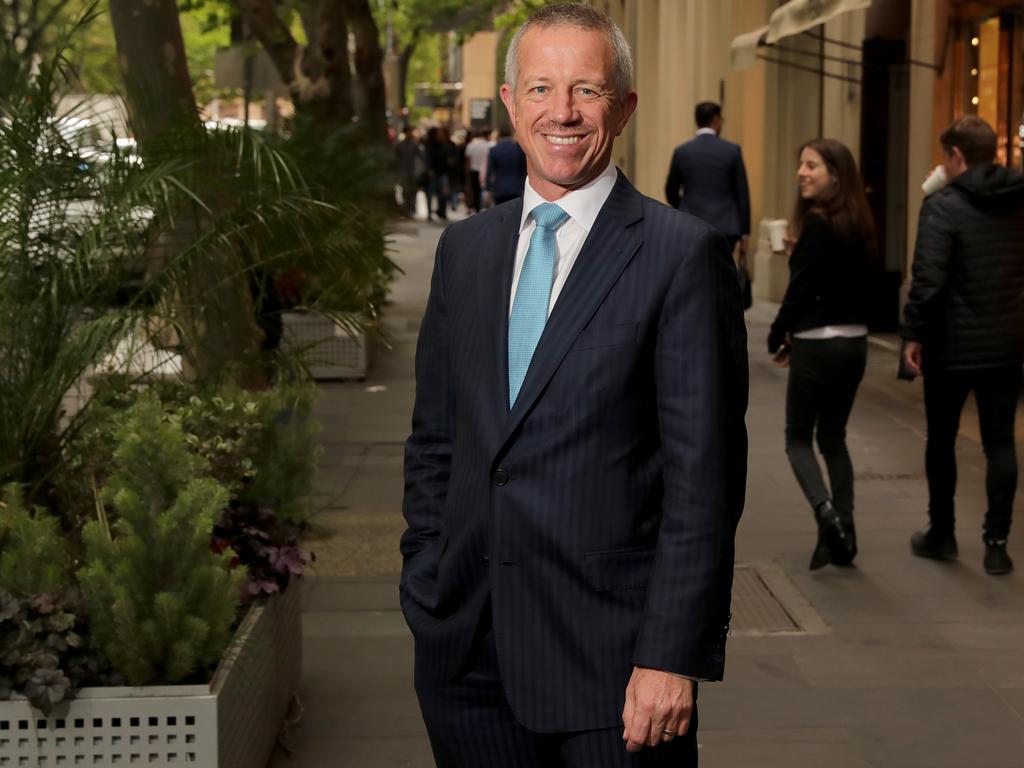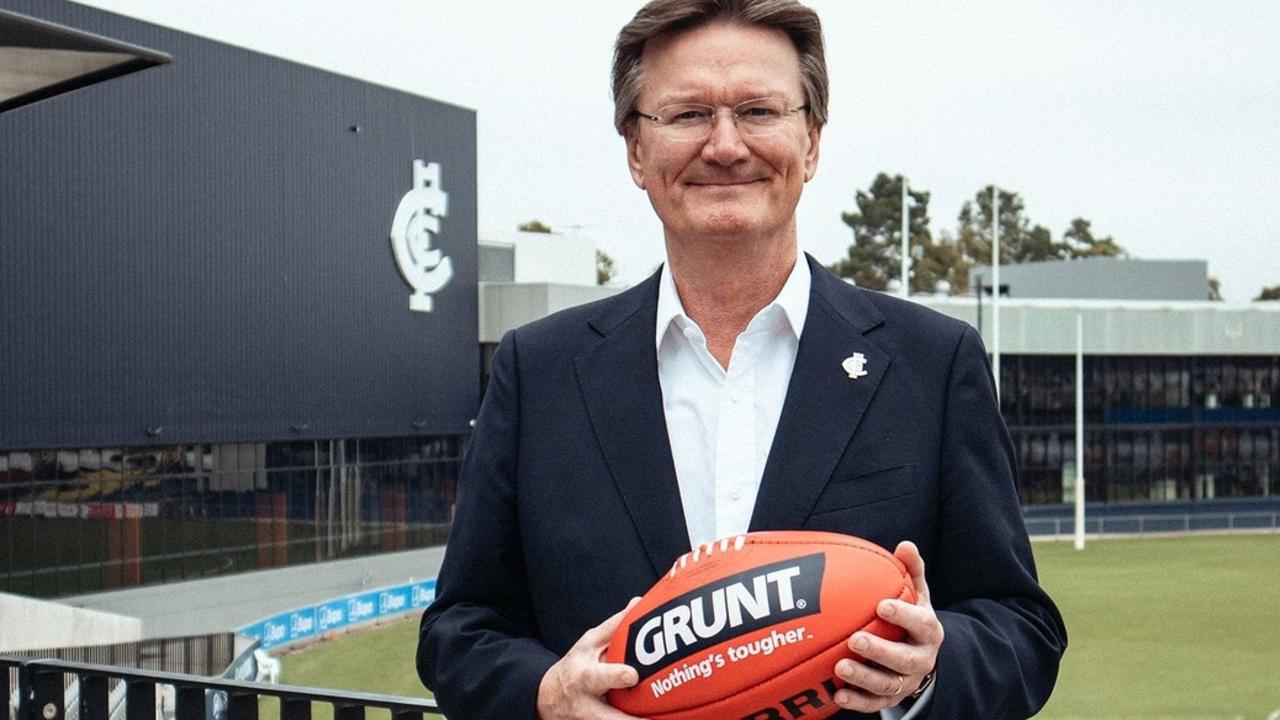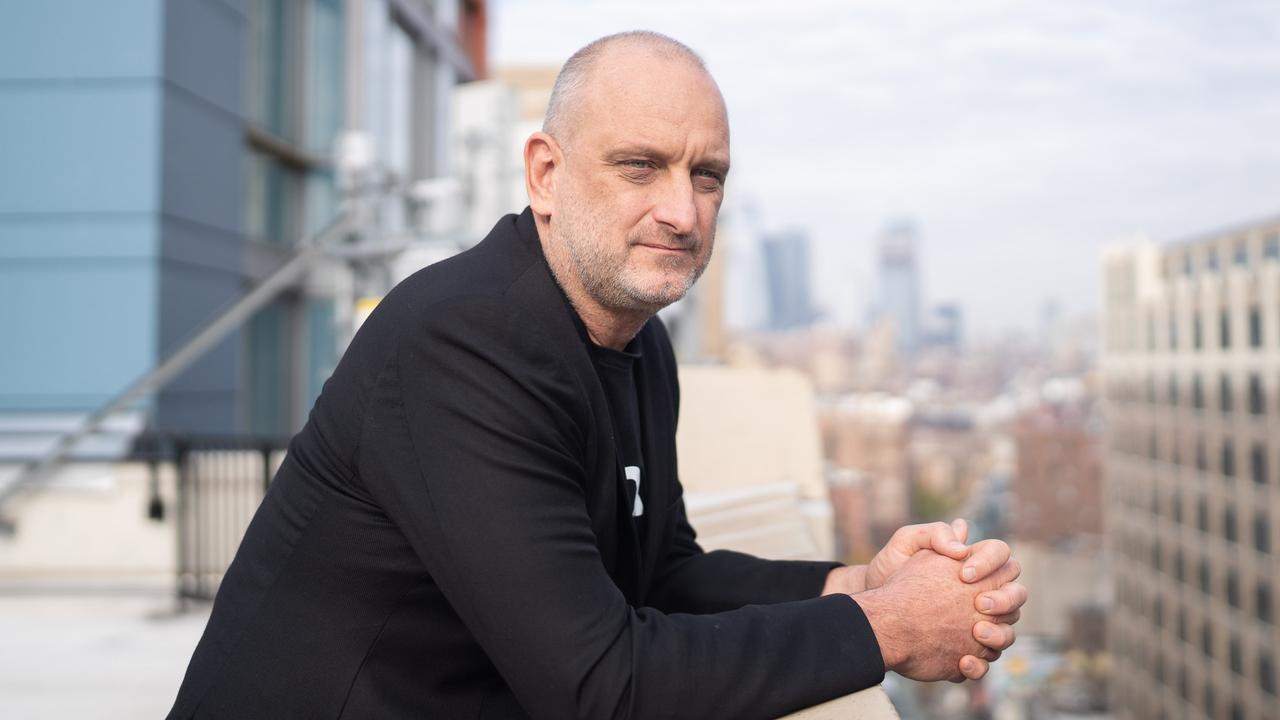Lessons from lockdown: What Melbourne-based CEOs learned during the pandemic
It is a lockdown that is out of anyone’s control, and for 16 Melbourne-based chief executives of global companies that is their reality.
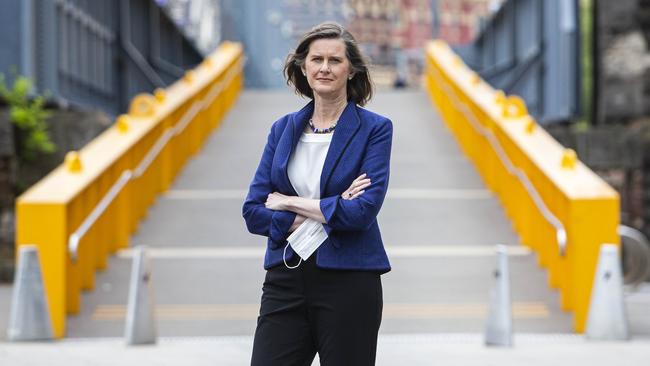
Victorians are anxiously awaiting Sunday’s news from Premier Daniel Andrews on what COVID restrictions will be lifted, but for ANZ’s Shayne Elliott, the thing he has missed most is the ability to plan and look forward to something.
It is a lockdown that is out of anyone’s control, and for 16 Melbourne-based chief executives of global companies that is their reality.
Given their roles they are generally upbeat and glass-half-full sort of people. For Nufarm’s Greg Hunt, one of the first things he will do when restrictions are lifted is get a haircut. Incitec Pivot’s Jeanne Johns is looking forward to going to a restaurant. Ernst & Young’s Tony Johnson is looking forward to a game of golf, Orica’s Alberto Calderon wants a game of tennis, NAB’s Ross McEwan will be back on the mountain bike and KPMG’s Alison Kitchen is looking forward to a restaurant breakfast with her daughter.
Telstra’s Andy Penn has elderly parents overseas and is keen to see them again, and Officeworks’ Adelaide-born Sarah Hunter is looking forward to seeing her family again.
Big business has spent the pandemic making itself as COVID-safe as possible and is ready to get back to work.
Hunter has three children from 10 months to nine years, so she has run a national retailer from home while juggling homeschooling in between Microsoft Teams and Cisco Webex meetings.
While the upside of working from home is increased flexibility, everyone is looking forward to returning to the office.
BHP’s Mike Henry says: “I really do think that now is the time to adopt a more practical risk-based approach to easing restrictions in Victoria. Expert advice supports the view that we can protect the vulnerable and manage outbreaks as they occur, while at the same time reopen safely. There will be a cost to not acting now — for individuals, for families, for businesses and for the economy.”
Calderon says his management has “worked longer and harder than before, but with the significant inefficiencies that comes from not being in the office”.
“Everything now is a Zoom meeting. Matters that are usually addressed with a short walk to an office now need to be scheduled and take much longer.
“This lockdown of offices is generating significant drag on our business.”
Henry says: “We can work remotely, but it’s not ideal. The longer it goes on the more problematic it becomes. You lose something in not being able to get together face-to-face regularly. There’s something in the human connection that comes from the day-to-day unstructured conversations and incidental interactions when you’re together. And I do worry about people’s mental and physical wellbeing.”
NAB’s McEwan notes: “It has been difficult running a national and trans-Tasman company from Melbourne in an extended lockdown. We’ve stayed connected through technology and had many more phone calls than usual — but I haven’t met physically with any of my executive leadership team or the board in six months. And it’s not easy for everyone to work from home, in particular those who have also been home-schooling or minding young children.”
Henry says: “This is a tough time for everyone, and maybe deceptively so sometimes. I’m actually finding that the deliberateness of needing to look out for one another has created stronger connections and trust in some relationships.
“I also watch out for the risk that the days all become one long continuum of work. I bring a bit of structure to my day. I get ‘dressed’ for work and am deliberate about carving out some personal time.”
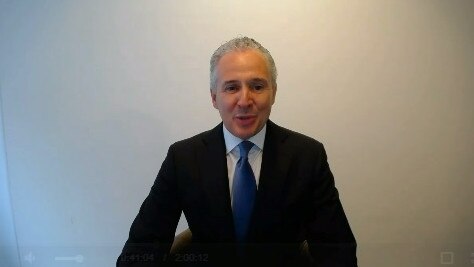
Calderon is more strident than most in his views, saying: “It is clear now that the effects of the lockdown on Victorians’ long-term health, wellbeing and prosperity, and the permanent damage it is having on our service sector, far outweigh the damage caused by the virus itself. Other states and countries have kept their societies and economies open with more cases than Victoria now has.”
McEwan says: “We now need to focus on how we can safely re-open and to have a plan to manage this virus in a way that doesn’t cause us to yo-yo in and out of widespread lockdown.”
Telstra’s Penn says: “It’s the first time in my career, my life, where I’ve had to respond to a crisis while living it at the same time. COVID is different — it has impacted us all personally and all of us are living, breathing examples of how the world of work has changed. We are mobile, we work remotely, we are connected, and we are working in ways we would have never thought possible even six short months ago.”
He misses “the face-to-face engagement and the informal interactions at the office — the chance to chat with people you bump into in the coffee shop or the side conversations before or after a meeting. But the upside of working from home is that it has truly broken down hierarchies in a way we couldn’t have imagined before. We are bringing people into our homes every day and they are seeing us in a way they never have before — with all of our issues, interests, challenges and vulnerabilities.
“This has only had a positive impact on relationships — be it with board members, my direct reports or anyone in the company.”
Bunnings’ Mike Schneider says: “The really pleasing thing to me is the enhanced authenticity working from home and being on camera can bring. There’s a unique window into each other’s lives with pets, partners and kids all featuring from time to time.
“I think pretty much everyone who I have met via video recently has heard or met my new pup Henry as an example!”
Business leaders have worked hard to communicate and keep staff engaged, doing everything from ANZ’s Pinot & Picasso art classes to Coles’ online gym sessions to Ernst & Young’s weekly broadcasts featuring Lucy and Labradoodle and chief Tony Johnson.
ANZ’s Shayne Elliott has open house chats and town hall meetings with several hundred people and regular meetings with direct reports, all with the aim of boosting the team.
Just how long this flexibility lasts when Melburnians can eventually return to work remains to be seen, with some companies such as JB Hi-Fi demanding at least two days a week in the office when life returns to normal.
Ernst & Young has 8000 people nationally but pre-COVID at any one time only 65 per cent were in the office.
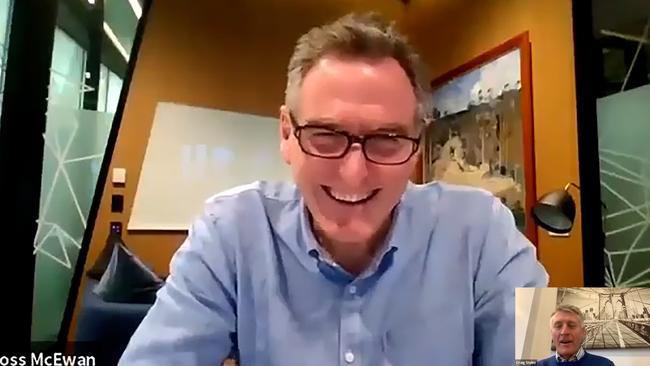
Now Perth and Adelaide are back to 80 per cent of normal but Sydney is still at 20 per cent and Melbourne of course is shut.
Undoubtedly in the short term city centres will be hit but the upside is suburbs will be boosted.
All the chief executives welcomed the chance to have face-to-face meetings again.
Pact Group’s Ruffy Geminder says: “I miss the nuance of sitting with people. We’re not machines — we are human.”
JB Hi-Fi’s Murray says: “I think there will be a challenge to the office culture but more so if people don’t want to come to the office.”
E&Y’s Johnson says: “Staff are enjoying the flexibility of no long commute and have shown to be more productive at home.”
He also notes the issue is discussed as though home is a refuge, but for some people it is not — and there are issues ranging from cramped conditions with too many people or outright abuse.
For these people, the office is a refuge.
Coles’ Steven Cain says: “It’s unlikely we’ll have more than 50 per cent of our team back in head office at any one time, which means less commuting and better car park availability. The focus on being in the head office will be for collaborative meetings and for those for whom working from home is too difficult.”
Elliott notes going to the office also takes people into a different world while their home suburbs are full of people just like them.
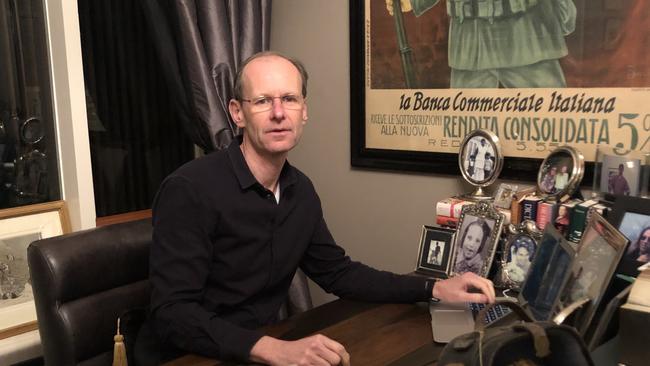
Officeworks’ Hunter notes time at home has also raised more human issues: “It’s sad but more people are talking about mental health and wellness in general.”
Penn says: “That simple question ‘how are you?’ during a health pandemic is no longer an empty remark but a sign we’re looking out for each other. It puts wellbeing, safety and mental health right at the centre and I think that‘s a really good thing.”
Schneider says: “We have kept our team engaged and supported through a range of activities including sessions on resilience led by Hugh van Kylenberg, the founder of The Resilience Project, and Graeme Cowan from the R U OK Day organisation. We have made it even easier for our team to access counselling and support.”
Bendigo Bank’s Marnie Baker notes: “It’s time we seriously looked at how we can shift and create jobs in other wonderful and perfectly liveable cities, towns and regions, where people can live without congestion, crowded public transport and where housing affordability is within reach.
“Perhaps COVID can be a reset moment in how we think about letting people live where they love.”
The bottom line is business wants to get back to business.
Schneider says: “We do have genuine concerns for both our team members and the community that the prolonged closure of retail will further exacerbate the increased anxiety for customers and retail employees.”


